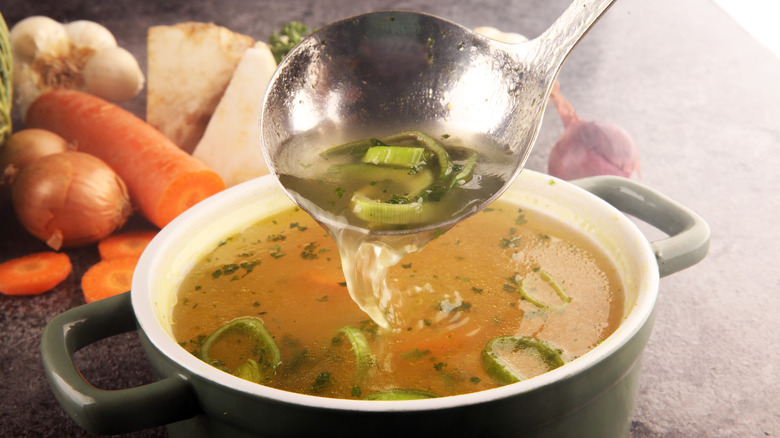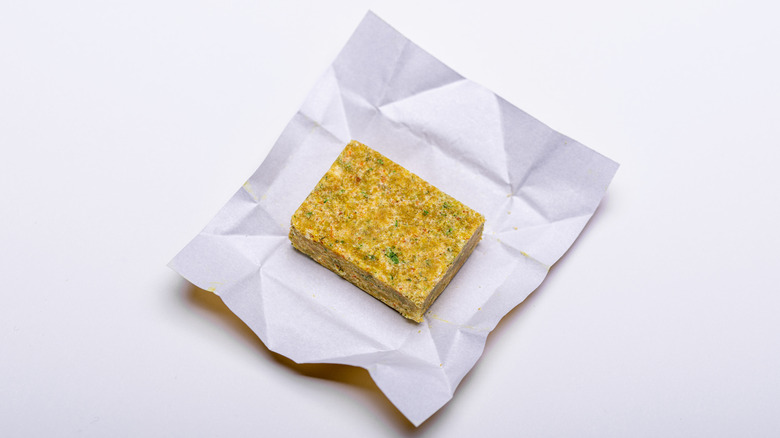Is Bouillon The Same Thing As Broth?
Once in a while, we come across recipes that stop us right in our tracks and send us off into a google rabbit hole of questions with inconclusive responses that leave us feeling more confused than when we started. While some recipes call for interchangeable ingredients, have you ever wondered what the actual differences are? For instance, we've all seen recipes for soups consisting of similar ingredients, yet, there are two things that hold most of us back from attempting to make a life-changing soup — bouillon and broth.
While these two vital building blocks can be found in many soups and listed as substitutes for each other in many recipes scattered on food websites, there are a few notable differences that distinguish the two. After all, these are two completely different elements, or else they'd have the same name, right? So what are the main differences? The line can get blurry.
The fraternal twins of soup: broth and bouillon
The fine line between bouillon and broth often gets blurred in the cooking process, so much so that even some professionals might not get it right. In order to explain the main differences, we first must take a closer look at what each is. According to Martha Stewart, broth is the remaining liquid after cooking meat, seafood, or vegetables in water, and can be served alone or as a soup base. Bouillon, on the other hand, is a condensed cube or powder derived from dehydrated broth, per 365 Days of Crockpot, and can be added as a burst of flavor to many recipes.
Yes, ultimately bouillon is the same as broth (and stock) but with key notable differences in taste and texture, for instance. Bouillon cubes or powder have significantly more amounts of sodium (via Bon Appétit) that further enhances its taste due to the oftentimes added traces of MSG, via Livestrong.

